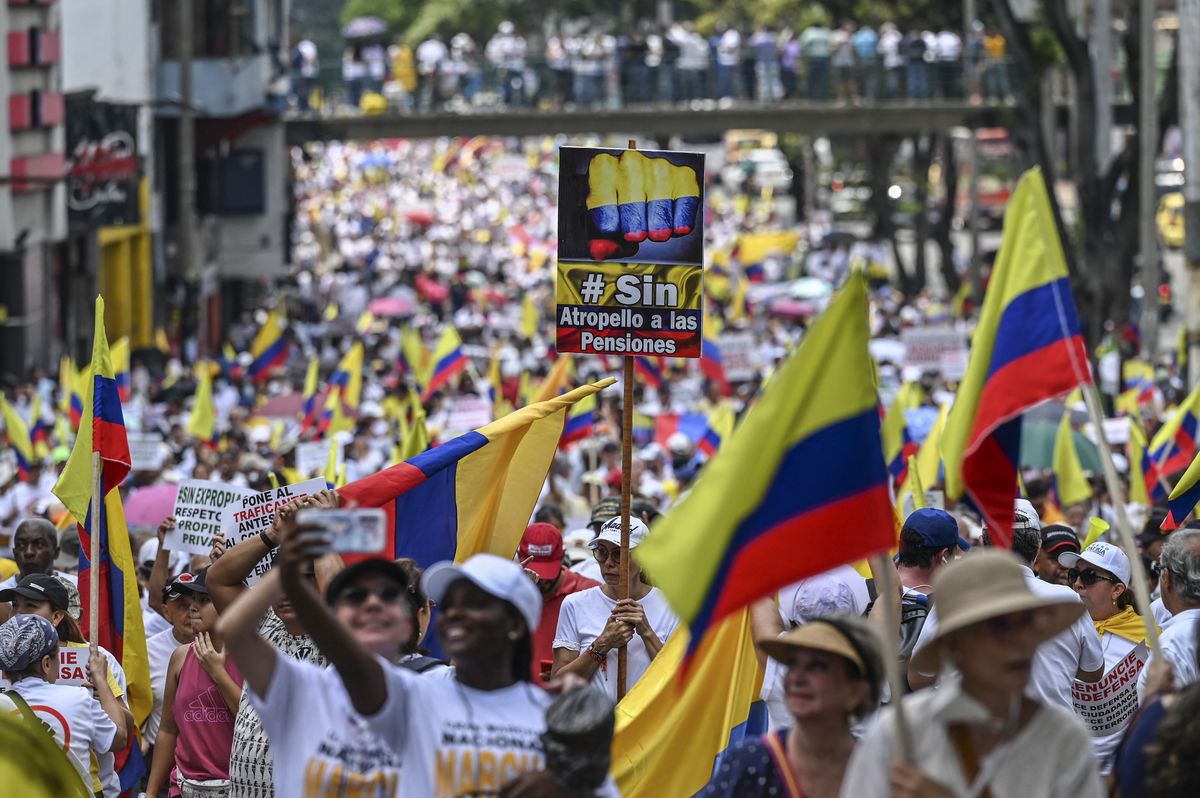Gustavo Petro's reform agenda is hard to swallow.
The pension reform would deteriorate the already deficient public system in the long term and would condemn today's young people to a future of taxes, high contributions and difficult retirement, since their parents will have left them a legacy of high debts and insufficient contributions.
The labor reform would leave 13 million informal workers without the hope of finding a job, for seeking to screw the nearly 10 million current formal employees into their jobs.
Since it will be very difficult in practice to fire someone, companies will be quick to fire those they can and hire as little as possible from then on.
The great beneficiaries will be the trade unionists, who do not reach 4% of the formal employees.
The health reform would sacrifice an insurance and care system that covers practically 100% of the population and that, although it needs calibration and efficiency, replaced a dinosaurian public system, which disappeared thirty years ago, suffocated by its poor quality, low coverage , high costs, corruption and inefficiency.
The constitutional reform of politics sought to return Colombia to the time of the cacicazgos in which the head of each political party imposed his very personal criteria on the herd of voters.
The goal was to create a single party that would exercise ideological, bureaucratic, and public procurement hegemony.
In good time he sank in Congress.
After these economic and political reforms, the true core of Gustavo Petro's government appears, the so-called total peace.
It is a negotiation strategy with thugs and guerrillas of all stripes, which has begun by weakening the Police, the Armed Forces and the riot police, preventing them from acting and ordering them to cease fire in the hot areas of Colombia.
With this, the business of planting coca, its processing, transportation and commercialization is profitable.
That is, the negotiating power of the counterparty increases, while its own decreases.
Who trades like that?
It is not logical to pretend that the current drug barons and perpetrators of all kinds of crimes will abandon their businesses just because they can retain 7% of their fortunes and low sentences.
What about better retaining one hundred percent and continue increasing it in the face of delegitimized, demoralized and barracks Armed Forces?
100 years ago, the Spanish philosopher José Ortega y Gasset, in an essential reading titled
Invertebrate Spain
, defended the need for the State to win the wars it had to fight.
Internal peace was achieved when it was credible that the State imposed the exercise of force against any individual actor.
Otherwise, many would be willing to test the state.
The more local wars, the easier it will be to prove state ineffectiveness.
Exactly as it happens today in Colombia.
Ortega y Gasset gave the Roman legions as an example, which, he said, “have prevented more battles than they have given.
Prestige gained in one combat prevents many others.
The state of perpetual war in which savage peoples live is due precisely to the fact that none of them is capable of forming an army and with it a respectable, prestigious national organization.
A policy of immobility and handing over of territory to illegal powers in the regions will lead to the surrender of the forces of order.
What then would be the benefit for criminals of abandoning their businesses and areas of influence and making peace?
The Colombia of rights, duties, laws, the Constitution, taxes, the rule of law and order is shrinking.
The other Colombia, with its arbitrariness, violence, lack of regulation or law, grows under the gaze of the authorities.
In a debate in Parliament, Winston Churchill said that he did not know if there was a woman without bones, as advertised by a circus in London at the time.
But he claimed that he did know what a boneless policy was.
He used a simile close to that of an invertebrate country with which Ortega y Gasset painfully defined the Spain of his time.
It is the painful image that emerges from the current Colombia that the voters and elected officials have chosen to dismantle.
We cannot exclusively blame the present government.
It takes decades and effort to undermine the skeletal system of a country.
But the reforms mentioned above are far from being a bone tonic.
You should go calmly when reforming.
But there are also issues of principle.
The principles are what allow Colombians to look at each other's faces every morning.
The non-negotiables.
Subjecting a country to the forces of evil takes away dignity, as well as leading to chaos.
Subscribe here
to the EL PAÍS newsletter on Colombia and receive all the latest information on the country.
Sign up for free to continue reading
LOGINSIGN UP
Or subscribe to read without limits

